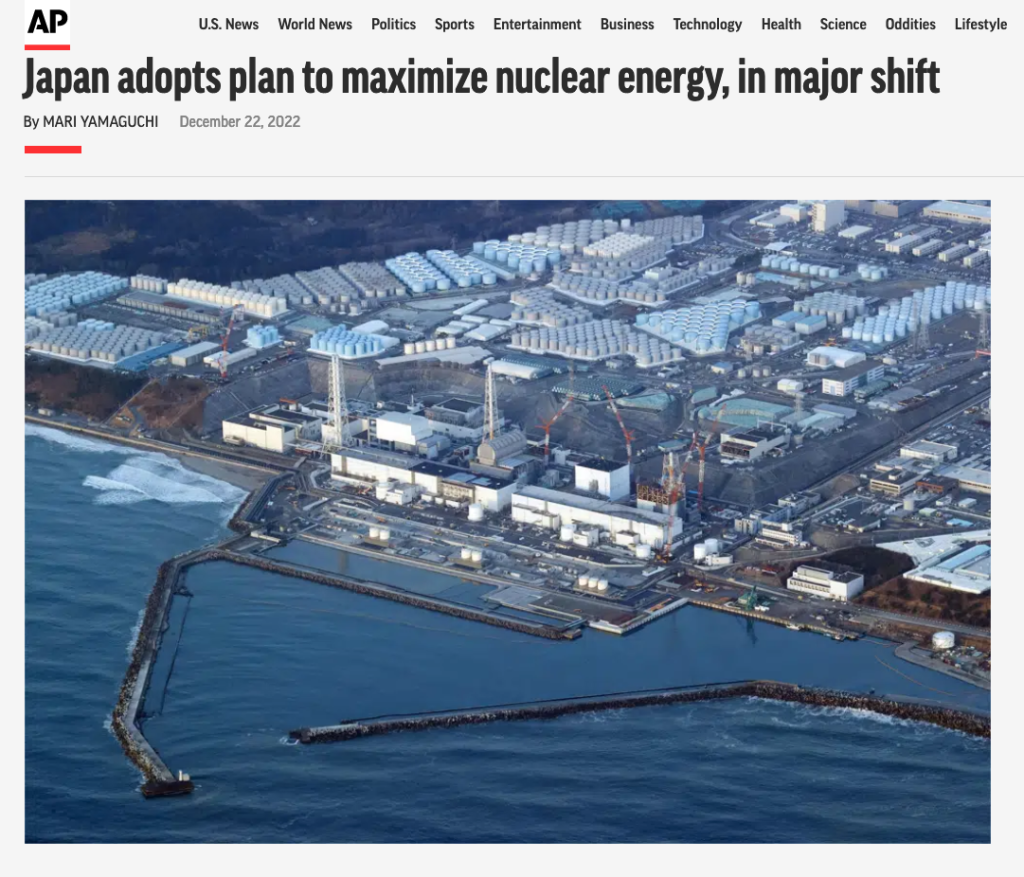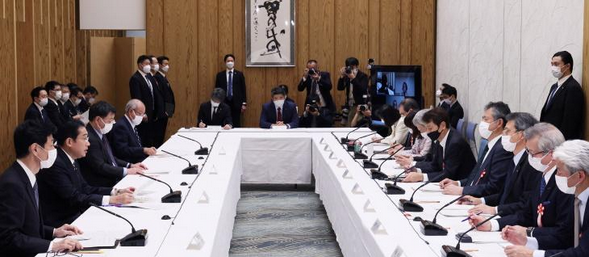Japan—the site of one of the worst nuclear accidents ever to occur—has reversed the decision to end use of nuclear. In a policy vote, Japan has adopted a plan to once again maximize use of nuclear to meet energy needs while reducing emissions. This is a major shift for Japan. Now the question on everyone’s mind, is whether the Germans will follow suit and consider re-starting their nuclear power plants.

For many, this reversal would seem quite unbelievable. Yet, in the face of global fuel shortages, rising prices and the threats posed by climate change, facts matter.
In fact, the Fukushima tragedy has been wildly mischaracterized. An earthquake set off a tsumani, which hit the Fukushima prefecture with a 30-foot wave which killed more than 15,000 people, caused billions in damage and also wiped out power to the Daiichi power plants. The loss of power happened because of improper placement of the back-up power system and poor enforcement. This resulted in loss of coolant and a reactor melt-down, which damaged the plant. However, the actual melt-down did not cause a single death. A better interpretation is to see this performance as evidence of the incredible safety of the plant, despite such severe circumstances.
Under their new policy, not only will Japan restart as many reactors as possible but they also plan to prolong the operating lives of againg plants and begin the process of developing next-generation reactors for building more nuclear capacity. Apparently, before Fukushima, Japan’s 54 nuclear reactors provided 30% of the nation’s power. Now, there are just 10 plants operating, 27 that have applied for restarts and 17 that have passed safety checks. Yet there are almost 20 that will likely need to be retired.
UPDATE Feb 2023: According to Kyodod News, Japan’s Cabinet formally adopted the planned policy (as described above) to allow for “the operation of nuclear reactors beyond their current 60-year limit alongside the building of new units to replace aging ones as part of efforts to cut carbon emissions while ensuring adequate national energy supply.”
Additionally, the Japanese government plans to raise about 20 trillion yen ($152 billion) through the issuance of green transformation bonds to boost investment in decarbonization projects, as it estimates public and private investment of over 150 trillion yen will be necessary over the next 10 years.
Read more at the AP, “Japan adopts plan to maximize nuclear energy, in major shift,” by Mari Yamaguchi, December 22, 2022 and Kyodo News, “Japan formally adopts policy of using nuclear reactors beyond 60 yrs,” February 10, 2023.
